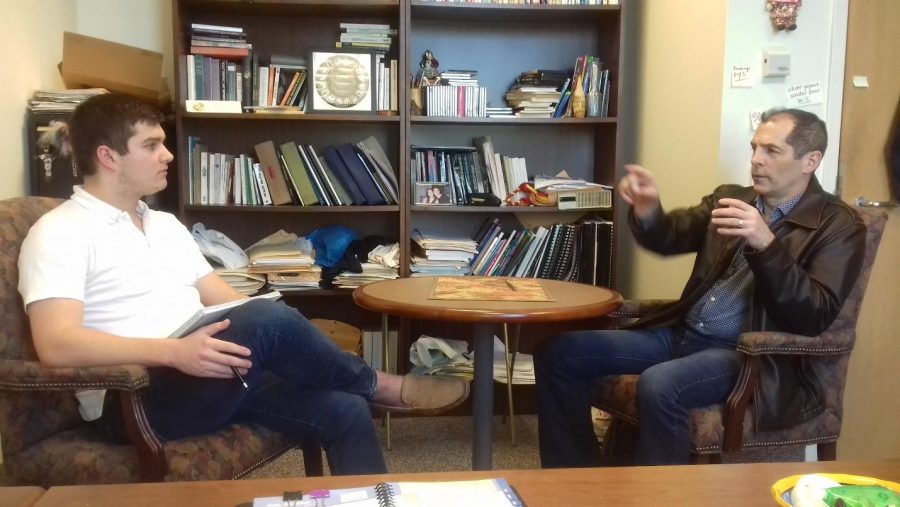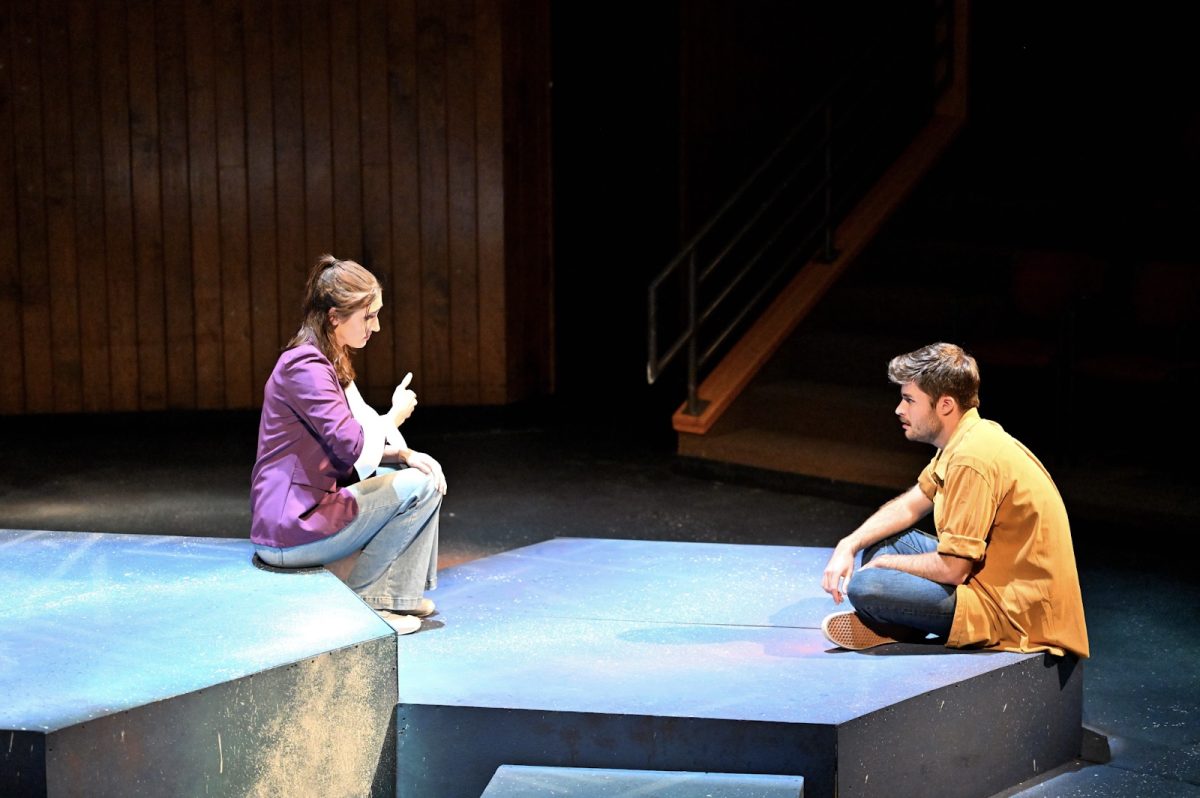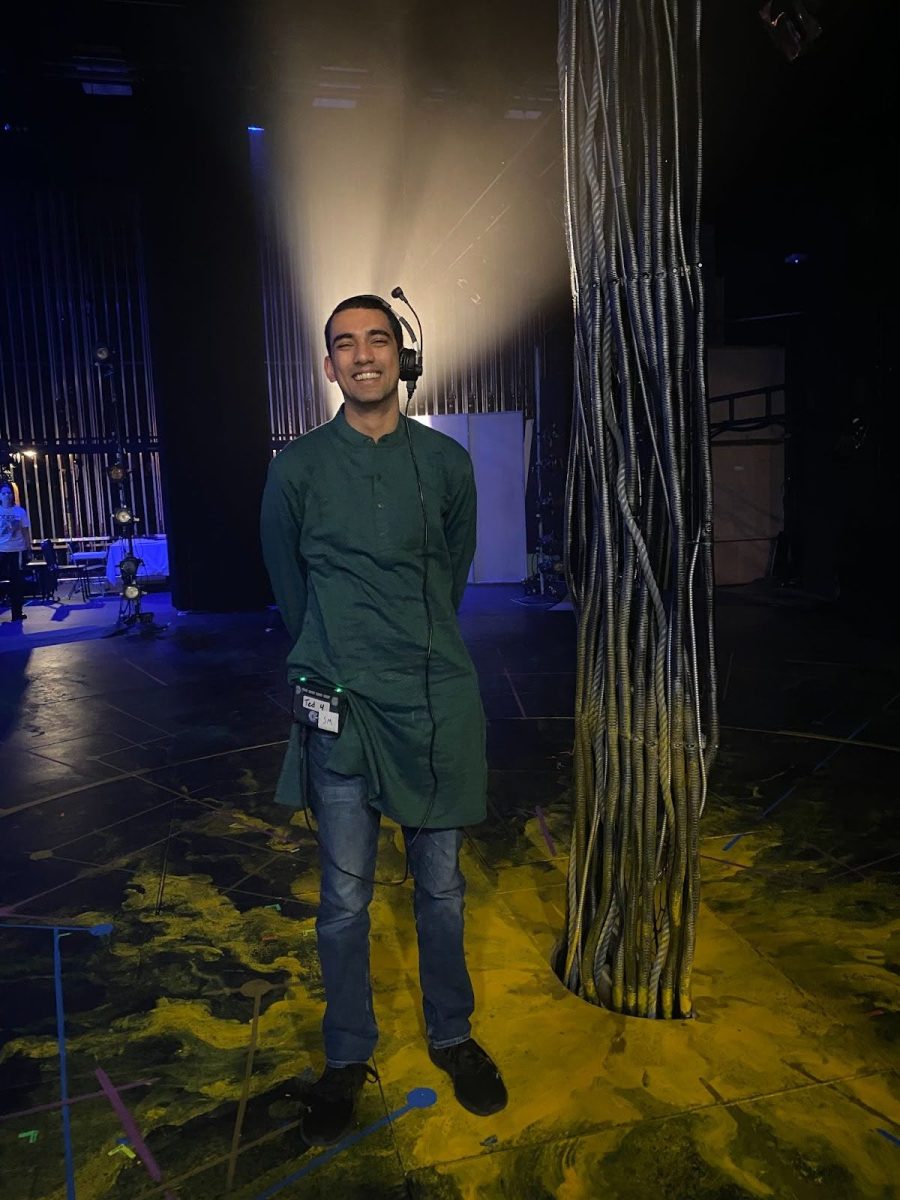On Feb. 25, the playwright Christopher Demos-Brown spoke in the Ring Theater about the theater artist’s role in society. He also discussed his new play, American Son, that debuted to critical acclaim on Broadway in November of last year.
Like many who manage to break into the entertainment industry, Demos-Brown’s story is hardly a typical one.
A Miami trial lawyer who began writing plays over 15 years ago, he originally wanted to be an actor but quickly became interested in writing after his work with an improvisational theater company.
When he spoke to Wake Forest students, he noted how his day job as an attorney — which he still holds onto despite his artistic success — has influenced the way that he writes.
American trial law, Demos-Brown emphasized, is an inherently adversarial system that regularly exposes him to the same types of conflicts and tensions that his plays depict on stage.
He also discussed how the transcripts that he encounters all the time as a lawyer allow him to see how spoken words translate to a page, which has been helpful in crafting realistic dialogue for his characters.
A distinguishing feature of Demos-Brown’s oeuvre is the authenticity with which his characters interact with one another. In American Son, for example, the audience observes how the unconditional love for a child can bring two parents together even when their marriage has nearly fallen apart.
In the play, a white FBI agent named Scott and his African-American wife Kendra sit in the waiting room of a police station while they try to obtain information regarding the whereabouts of their son, who they have just learned has been involved in an incident with the police. The play chronicles the couple’s struggle to learn the truth about their child and explores perennial themes of race, identity and family in the process.
I sat down with Demos-Brown to talk about his life, his career and how he understands his place in the world as an artist.
When I asked him if he thought that American Son is a play that is unique to our historical moment, he offered a thoughtful answer.
When he wrote it, he hoped that the “immediate facts of the play would become obsolete” after a season or two, but also noted that he hopes it will remain relevant “in the same way that A Raisin in the Sun is relevant” because both works tackle themes that endure even when the precise cultural landscape changes.
In its most basic form, he explained, art is about “human connection” and it helps us break down the barriers and “tribal differences” that all too often divide us.
An artist’s role, then he believes, “is to touch you, to poke and prod, to uncover unconscious biases and make them less malicious, and ultimately, to make us better people.”
“We are designed to communicate through stories,” he told me, “and theater is the toolbox for telling stories.”
There is a lot of bias and discrimination that exists in this world, he lamented, but not all of it is malicious. Some of it, he said, is “just what we have come to assume.”
To that end, Demos-Brown affirmed that part of the purpose of his plays is to confound the audience’s expectations and not allow them to fall back on easy explanations for the difficult realities with which the world confronts us.
A white man who is married to a black woman but who clearly still retains racial prejudice of his own. A young boy who is at the top of his class but struggles to understand who he really is. A married couple who constantly argue with one another but work together to figure out what has happened to their son. These are just some examples of how Demos-Brown interrogates the common-sense notions that many of his audience undoubtedly have with respect to race, family and even what it means to be a human in today’s world.
This summer, Netflix will release a special version of a live performance of American Son on its streaming service. Audiences of all backgrounds and experiences will surely enjoy this opportunity to watch a timely play from one of this country’s most promising and talented new playwrights.








